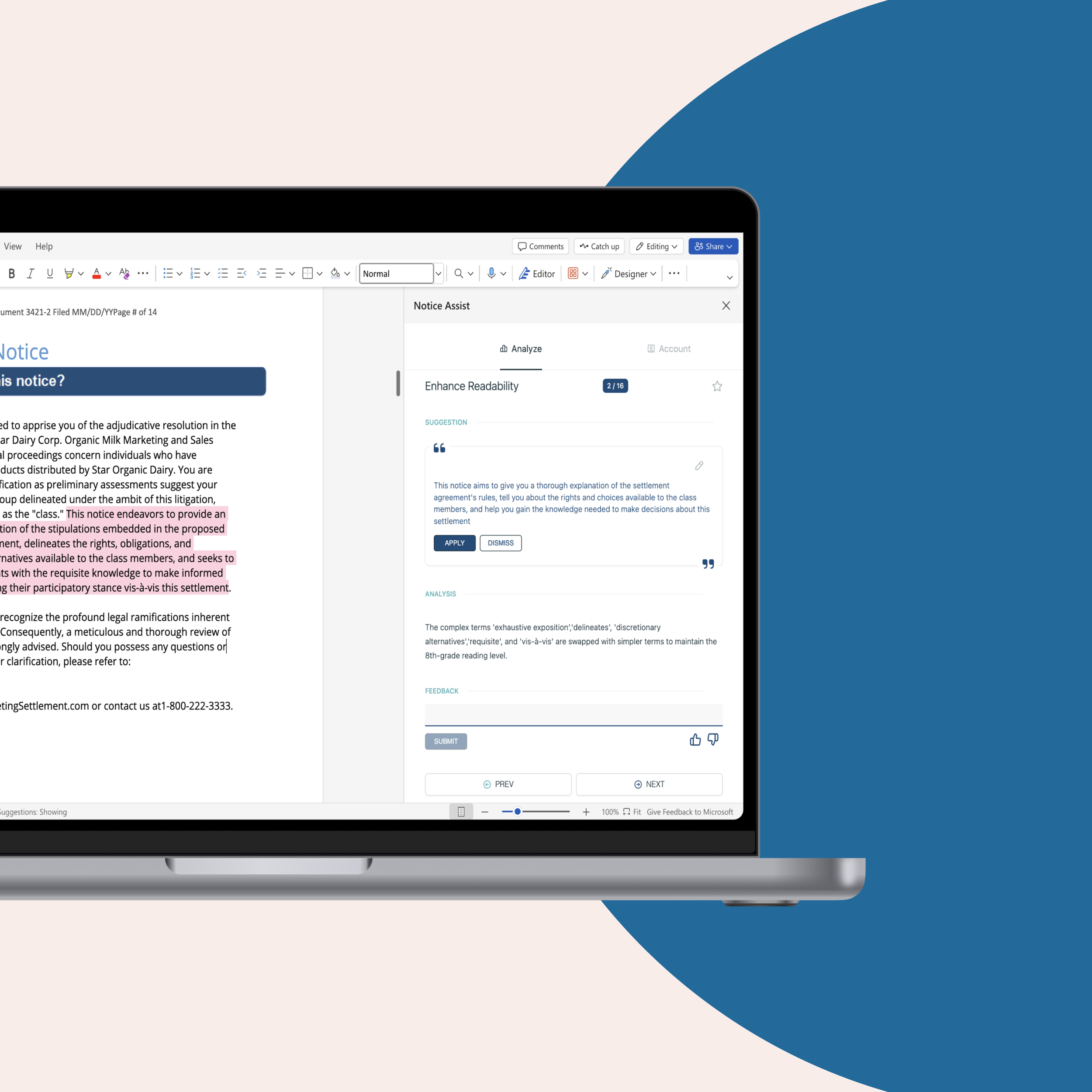
PRACTITIONER BLOG
Read our analyses of developments in Impact Litigation and stay current on class action law

Launching NoticeAssist: Software That Helps Litigators Draft Better Class Action Notices
Last month we launched NoticeAssist, the first-of-its-kind, free software tool to help practitioners draft clear and effective class notices. In a moment, I’ll tell you what it can do for you. But, some of you may be wondering - why software and why now?

The Seventh Circuit Breaks with Eleventh, Allows Service Awards for Named Plaintiffs
In 2020, a panel of the Eleventh Circuit Court of Appeals stunned the class action bar when it ruled in Johnson v. NPAS Solutions., LLC, 975 F.3d 1244 (11th Cir. 2020), that service awards for class representatives are categorically unlawful. Service awards are financial payments to class representatives that have long been used to acknowledge their service to the class. In April of 2024, the Seventh Circuit split with the Eleventh Circuit when it allowed service awards.

How One Clause in Uber’s Terms of Use Could Overload U.S. Courts
If you’ve ever ridden in an Uber, you’ve ‘agreed’ to their non-negotiable terms of use. One of those terms, called the Non-Consolidation Clause, waives your right to participate in “consolidated proceedings,” group proceedings like class action lawsuits and multi-district litigation. Basically, Uber is requiring all customers to bring cases individually, regardless of what the case is about or what kind of proceeding it is. If successful, this new corporate mechanism has the potential to overload our already taxed courts.

Announcing the Launch of the Class Notice Project
Starting today, litigators can access free, easy-to-use class notice templates designed to seamlessly facilitate the creation of notices that are engaging and understandable for class members.
